Mercury 230 HP Sterndrive 3.0L Inboard Diesel Engine
Buy New Mercury 230 HP Sterndrive 3.0L Inboard Diesel Engine for sale online, When it comes to performance, reliability, and efficiency in marine engines, the Mercury 230 HP Sterndrive 3.0L Inboard Diesel Engine stands out as a top choice for boat owners.
$4,350.00
Mercury 230 HP Sterndrive 3.0L Inboard Diesel Engine: A Complete Guide
When it comes to marine propulsion systems, reliability, performance, and efficiency are the top priorities for boat owners and marine professionals alike. The Mercury 230 HP Sterndrive 3.0L Inboard Diesel Engine stands out as one of the most advanced and durable diesel engines in the inboard category. Known for its fuel efficiency, compact design, and high torque output, this engine is engineered to meet the demands of both commercial and recreational marine applications.
In this detailed guide, we will explore everything you need to know about the Mercury 230 HP Sterndrive 3.0L Inboard Diesel Engine, including its features, benefits, technical specifications, common applications, and maintenance requirements.
Table of Contents
-
Overview of Mercury Diesel Engines
-
Introduction to the Mercury 230 HP 3.0L Diesel
-
Key Features and Technologies
-
Technical Specifications
-
Performance and Efficiency
-
Applications and Use Cases
-
Comparison with Other Diesel Engines
-
Maintenance and Servicing Tips
-
Pros and Cons
-
Frequently Asked Questions (FAQs)
-
Conclusion
1. Overview of Mercury Diesel Engines
Mercury Marine, a division of Brunswick Corporation, is a world leader in marine propulsion systems. With decades of engineering experience and innovation, Mercury has developed a wide range of diesel and gasoline engines tailored to all types of watercraft.
Mercury’s diesel engine line emphasizes:
-
Low fuel consumption
-
High torque
-
Low emissions
-
Durability and corrosion resistance
-
Compatibility with digital controls and SmartCraft technologies
The Mercury 3.0L 230 HP diesel is a prime example of this engineering excellence.
2. Introduction to the Mercury 230 HP 3.0L Diesel Engine
The Mercury 230 HP Sterndrive 3.0L Inboard Diesel Engine is a turbocharged, common-rail diesel engine designed for sterndrive applications. It offers exceptional torque at low RPM, which makes it ideal for pushing heavy boats or planing vessels efficiently.
Key Attributes:
-
Horsepower: 230 HP @ 4,200 RPM
-
Displacement: 3.0 liters
-
Fuel Type: Ultra-low sulfur diesel (ULSD)
-
Drive Type: Sterndrive
-
Engine Type: Inline 4-cylinder, turbocharged
Its compact dimensions and lightweight aluminum block make it easier to install in boats where space is a constraint.
3. Key Features and Technologies
The Mercury 230 HP 3.0L Diesel Engine incorporates several cutting-edge features that enhance its performance, efficiency, and longevity:
a. Turbocharged and Intercooled
-
Boosts power output without increasing engine size
-
Cooled air intake improves combustion efficiency
b. Common-Rail Direct Injection
-
Ensures precise fuel delivery
-
Reduces fuel consumption and emissions
-
Enhances cold starting performance
c. SmartCraft® Integration
-
Allows real-time engine monitoring
-
Easy-to-read digital gauges
-
Compatible with VesselView® displays
d. Freshwater Cooling System
-
Prolongs engine life in saltwater environments
-
Reduces internal corrosion
e. Advanced Corrosion Protection
-
Ideal for both freshwater and saltwater use
-
Utilizes marine-grade aluminum alloys and coatings
4. Technical Specifications
| Specification | Detail |
|---|---|
| Engine Type | Inline 4-cylinder, 4-stroke |
| Horsepower | 230 HP @ 4,200 RPM |
| Displacement | 3.0 Liters |
| Aspiration | Turbocharged and intercooled |
| Fuel System | Common-rail direct injection |
| Cooling System | Closed loop with heat exchanger |
| Dry Weight | ~770 lbs (engine only) |
| Emissions | Meets EPA Tier 3 and EU RCD standards |
| Oil Capacity | Approx. 8.5 quarts (8 liters) |
| Alternator Output | 110 Amps |
These specifications position the 230 HP 3.0L Diesel as a compact powerhouse, capable of delivering strong acceleration and smooth cruising.
5. Performance and Efficiency
High Torque at Low RPM
Diesel engines inherently produce more torque at lower RPM compared to gasoline engines. The 3.0L Mercury Diesel generates ample torque from idle, enabling:
-
Quicker planing
-
Strong mid-range acceleration
-
Better load-carrying capability
Fuel Efficiency
Compared to gasoline inboards of similar horsepower, the Mercury 3.0L diesel offers:
-
30–40% better fuel economy
-
Longer range between refuels
-
Lower operating costs over time
Noise and Vibration Reduction
This engine is engineered to reduce cabin noise and vibrations through:
-
Balanced rotating assembly
-
Isolated mounts
-
Optimized injection timing
6. Applications and Use Cases
The Mercury 230 HP 3.0L Diesel Sterndrive is versatile and well-suited for a wide range of vessels, including:
-
Cruisers and Cabin Boats: Smooth, quiet operation for family outings
-
Workboats and Patrol Boats: Rugged performance and high durability
-
Fishing Boats: Excellent fuel efficiency for long offshore runs
-
Water Taxis and Transport Boats: Dependable and economical propulsion
-
Rigid Inflatable Boats (RIBs): Light weight and compact design aids balance
7. Comparison with Other Diesel Engines
Mercury 3.0L Diesel vs. Volvo Penta D3
| Feature | Mercury 3.0L | Volvo Penta D3 |
|---|---|---|
| HP | 230 | 220 |
| Weight | ~770 lbs | ~870 lbs |
| Torque | Higher at low RPM | Comparable |
| Fuel Efficiency | Superior | Good |
| Digital Integration | SmartCraft | EVC |
| Winner | ✅ Mercury | ❌ |
The Mercury 3.0L Diesel stands out for its better weight-to-power ratio, improved digital control integration, and lower fuel consumption.
8. Maintenance and Servicing Tips
Routine maintenance is key to extending the life of your inboard diesel engine. Here are some tips:
Regular Checks:
-
Oil and Filter Changes every 100 hours or annually
-
Fuel Filters – Replace every 200 hours
-
Cooling System Flush – At least once per season
-
Belt Inspection – Check for wear and tension
-
Battery and Alternator – Test connections and output
Use Genuine Mercury Parts
Always use OEM Mercury filters, fluids, and service kits to ensure compatibility and warranty protection.
Store Properly During Off-Season
-
Flush with freshwater
-
Add fuel stabilizer
-
Fog internal components if required
9. Pros and Cons
✅ Pros:
-
Exceptional fuel economy
-
Compact and lightweight
-
Powerful low-end torque
-
SmartCraft® compatibility
-
Low emissions and noise
-
Long-term cost savings
❌ Cons:
-
Higher upfront cost than gas engines
-
Diesel fuel may not be readily available in all locations
-
Requires periodic injector servicing
10. Frequently Asked Questions (FAQs)
Q1: What boats are compatible with the Mercury 230 HP 3.0L Diesel?
A: It is ideal for mid-size cruisers, fishing boats, and commercial vessels requiring sterndrive propulsion.
Q2: Is the Mercury 3.0L diesel engine suitable for saltwater?
A: Yes, it features marine-grade materials and freshwater cooling to resist saltwater corrosion.
Q3: How often does this engine need servicing?
A: Routine maintenance is recommended every 100–200 hours of use, or annually.
Q4: Can I upgrade from a gas sterndrive to this diesel engine?
A: Yes, with proper engine bay modifications and controls integration.
Q5: Is the engine EPA compliant?
A: Yes, it meets all current EPA Tier 3 and EU RCD emissions standards.

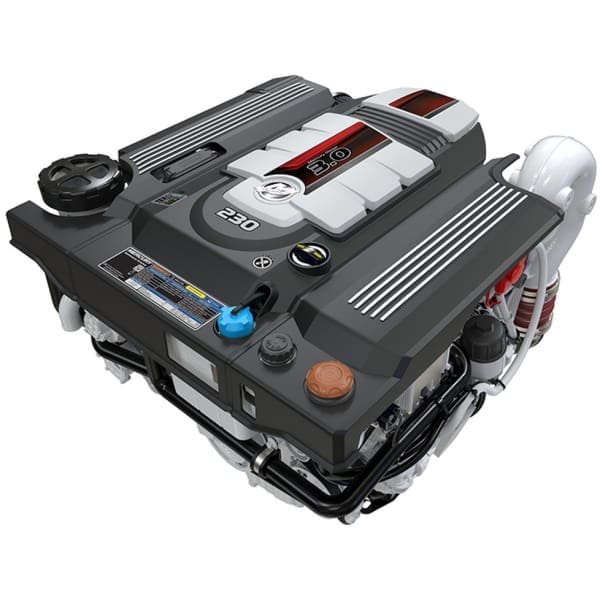
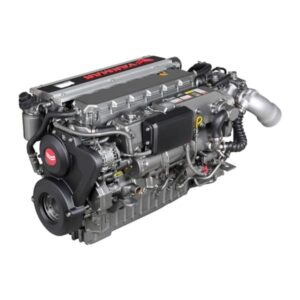
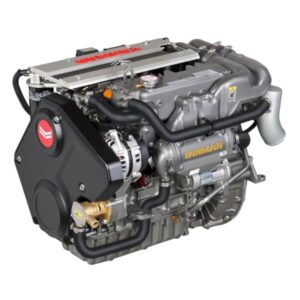
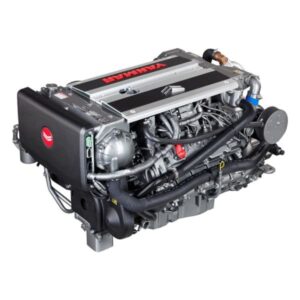
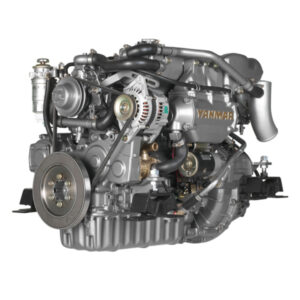
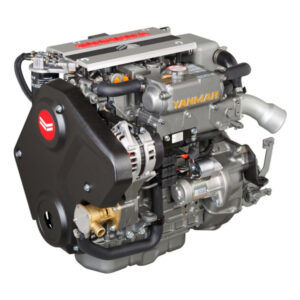
There are no reviews yet.